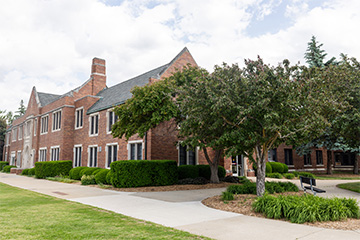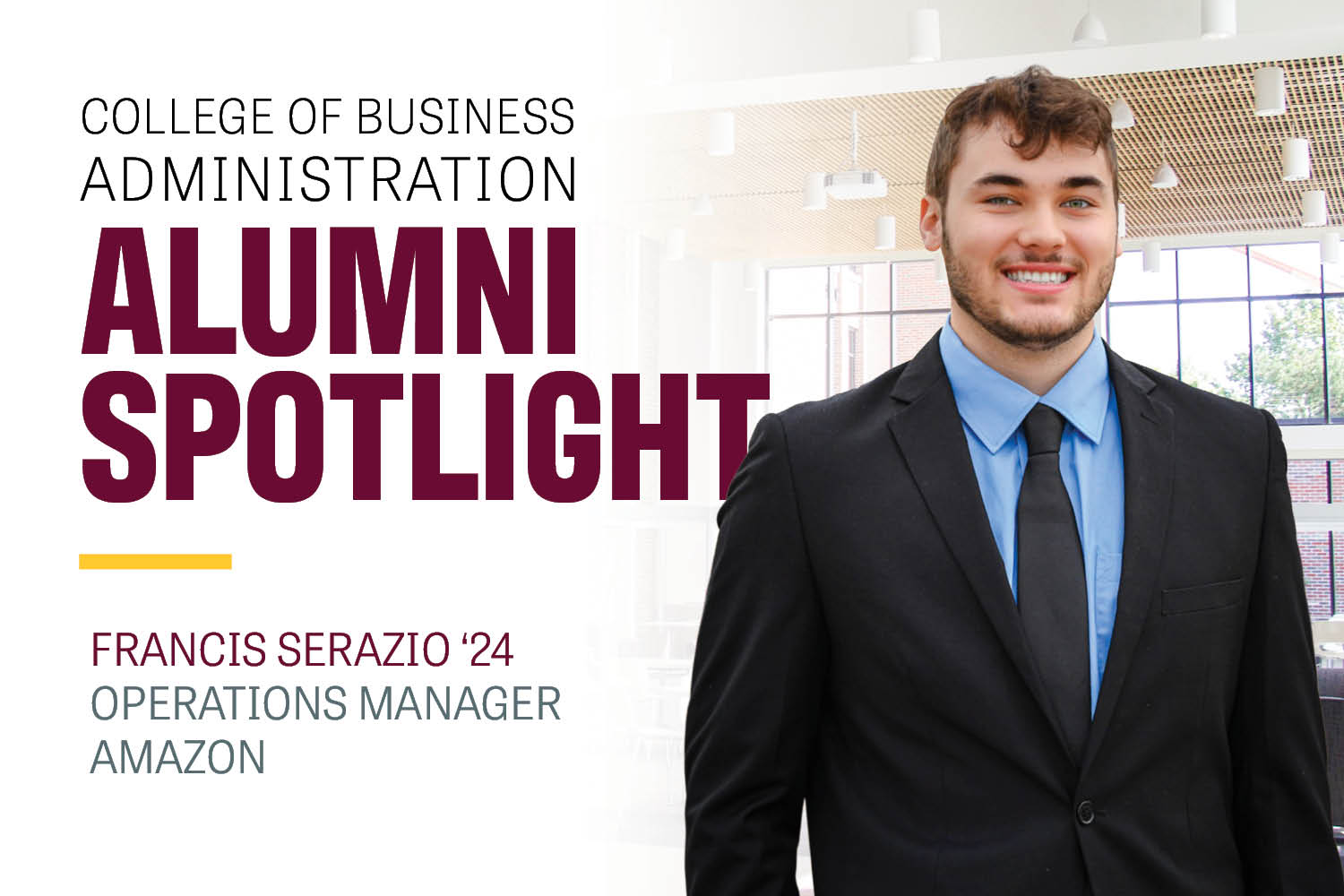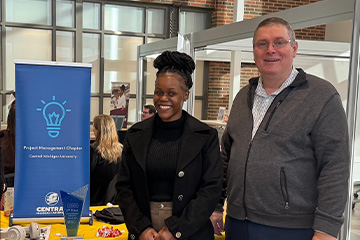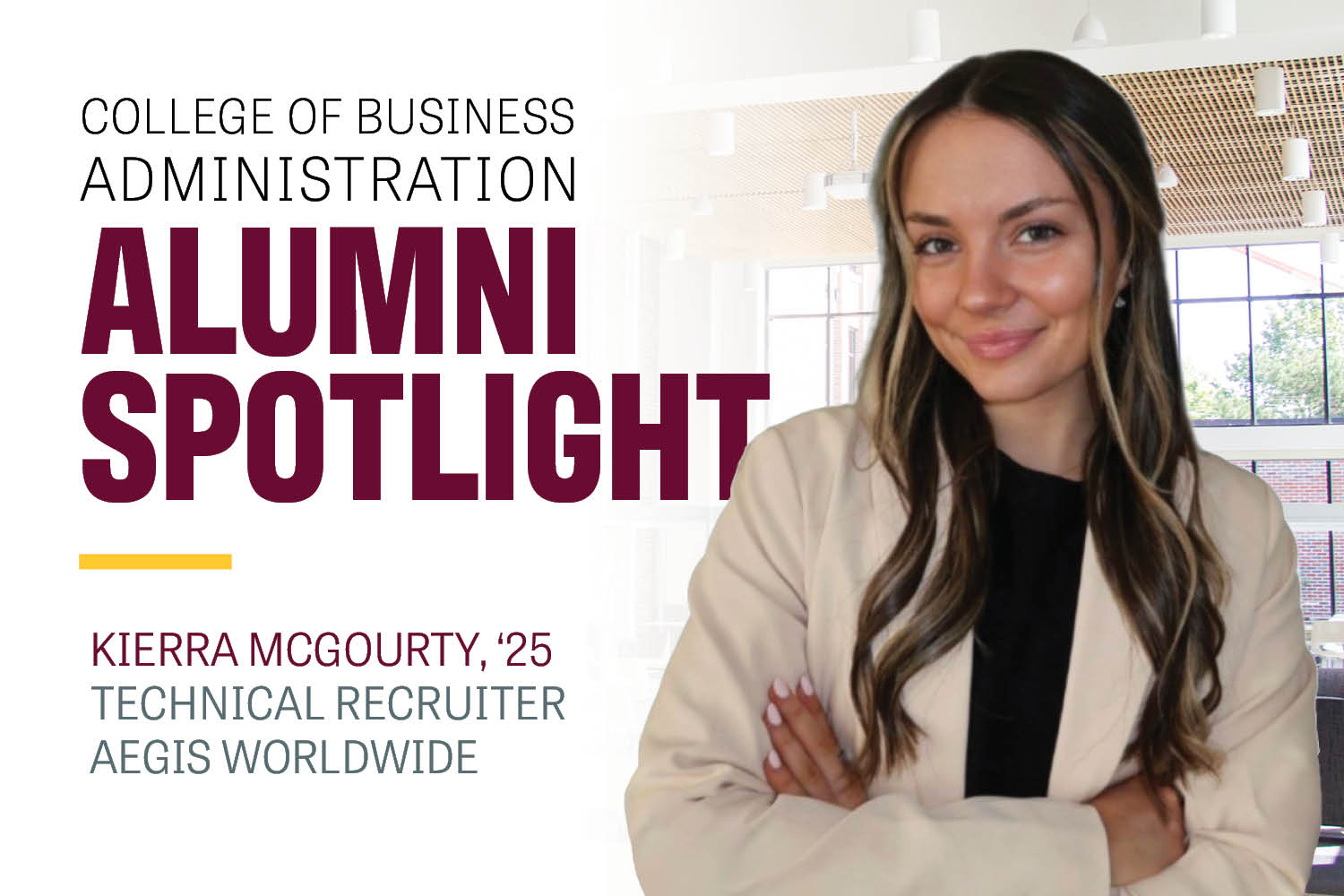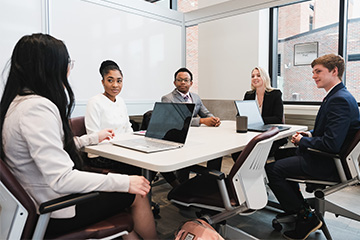A dream beyond borders
Aimen Khan's journey through MS & MBA
I've always loved traveling. It’s not just a hobby; it’s a part of how I feel alive. I landed in America on the 28th of December—not to settle in, not to start studying right away, but to see New York. To feel the pulse of Times Square as it erupted in celebration on New Year’s Eve. To begin this new chapter of life with wonder, adventure, and awe. It was just me and the wide-open possibilities of this new world.
Six months ago, I boarded a flight carrying more than just luggage—I carried ambition, hope, and a dream stitched together by years of planning. Pursuing an MBA abroad had always been on my bucket list, and when I got the opportunity to study in the United States, I saw it as the beginning of a transformative journey.
I was ready for new experiences, ready to learn, grow, and achieve more than I had ever before. But I never anticipated how life would truly test me—and what I would learn, not from textbooks, but from surviving, adapting, and bouncing back stronger than ever.
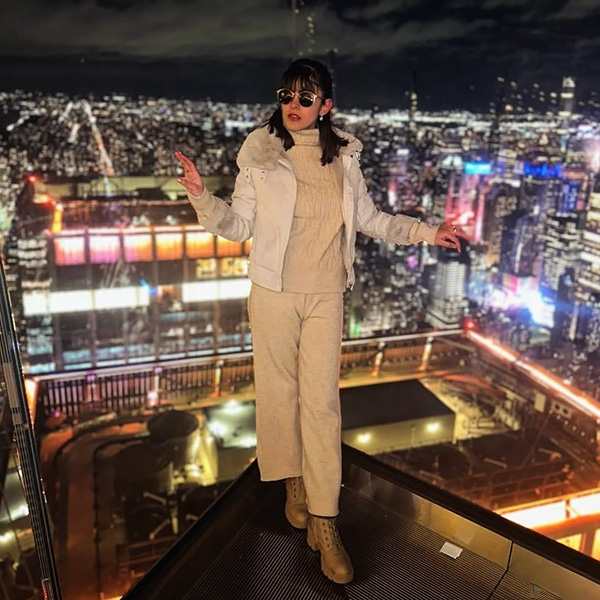
A semester like no other
The first few weeks of my MBA program felt like a whirlwind. Everything was new—the campus, the teaching style, the people, even the grocery stores. But I embraced it all with open arms. I was thriving in the academic environment, performing better than I had planned. I found my rhythm quickly: attending lectures, managing projects, exploring new friendships, and building networks with driven, like-minded people from across the globe.
Despite being thousands of miles away from home, I felt like I was exactly where I was meant to be. In just a few months, I had already achieved more than I imagined—getting my driver’s license, landing a campus job, and maintaining strong grades. I was on a roll. Until one day, everything changed.
The unexpected speedbump
It started with fatigue—deep, inexplicable exhaustion that clung to me no matter how much I rested. Then came the tingling, numbness, and sudden weakness in my legs. At first, I chalked it up to stress or overexertion. But the symptoms grew more aggressive, and within days, I could barely stand, let alone walk. What followed was a cascade of medical tests, hospital visits, and eventually, a diagnosis: Multiple Sclerosis.
It was surreal. One moment I was a healthy, high-performing MBA student, and the next, I was facing a chronic neurological disease in a foreign land, away from family and familiarity. I was devastated. I cried. But only for two days because my husband — my rock — told me, “No matter what state you're in, I'm staying.” That love, that support, gave me the strength to accept the unknown and choose to live regardless of what came next.
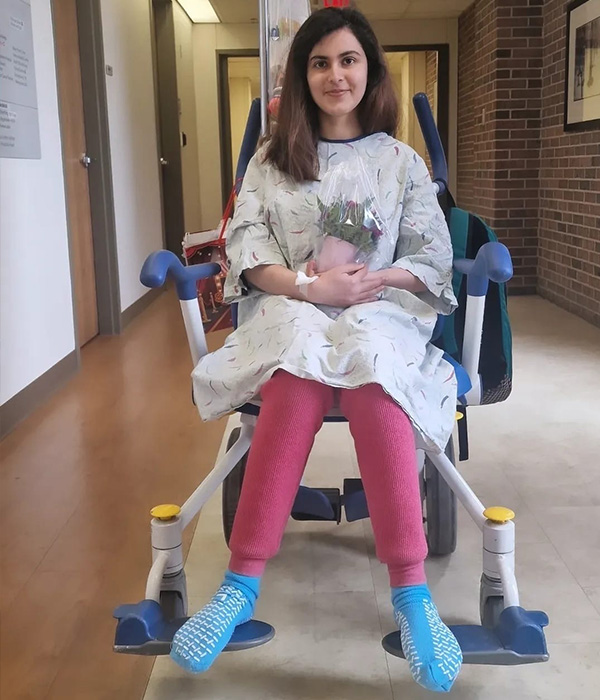
What is MS?
I didn’t even know what MS was when I first heard the diagnosis. So I did what anyone would—I Googled it.
Multiple Sclerosis is a chronic autoimmune disorder that attacks the central nervous system, damaging the protective covering (myelin) of nerves. It disrupts the communication between the brain and the body, causing symptoms like fatigue, paralysis, vision problems, muscle weakness, and cognitive dysfunction, among others. It's unpredictable—sometimes invisible, sometimes overwhelming.
What scared me most was reading that it had no cure. I was at the peak of my youth—twenties, young. And I was being told my body might not listen to me anymore.
But I refused to let that fear consume me. I had things to do.
Resilience in action
But here’s what I learned—resilience doesn’t come when you feel strong. It shows up when you feel broken.
I gave myself 14 days. Fourteen days to fight back, to figure out how I would move again, how I would study again, how I would live again—not just survive.
With medication, physical therapy, a lot of emotional support from afar, and a fierce refusal to surrender, I went from a wheelchair back to walking. Slowly, painfully, but determinedly. In just two weeks, I took back my power. It wasn’t just a physical recovery—it was a mental and spiritual one.
Even my doctors called it a miracle.
CMU and insurance
Before I dive into how I made it from a hospital bed to the exam desk, I must say—Central Michigan University showed a level of support that deserves its own spotlight. They accommodated me beyond expectations: allowing real-time virtual exams instead of face-to-face sessions, letting me complete my entire degree in just one year at the same cost. Even my student insurance was phenomenal. I didn’t pay a single dollar except for my take-home medications. Still, being new to the U.S., I was terrified I’d end up with a hefty bill. I kept calling GeoBlue’s helpline, nervously asking if the ambulance ride or hospital stay was covered. I was too scared to even order food on the first day—so I told my husband to bring pizza at midnight! Later, I found out even meals were included. One of the insurance agents laughed and said, “Are you sure you’re in the hospital? Because your brain seems to be working just fine!” I told him, “The fear of a heart attack would be real if I got a bill later—I just had to make sure!”
From hospital bed to exam desk
I was the only patient who came into the neuro ward with a laptop. Everyone told me to relax and not worry about deadlines, but falling behind was terrifying. My doctors said they rarely meet patients who are so determined despite battling a neuro disease and brain fog.
Even as I battled fatigue, hospital stays, and emotional strain, I was still a student. Finals were approaching, and despite everything, I wanted to finish the semester. From my hospital bed, with IV drips attached and nurses coming in and out, I studied. I submitted assignments. I showed up to exams—virtually or otherwise—because I refused to let my diagnosis rob me of what I’d worked so hard for.
As soon as I was discharged, I didn’t go home to rest—I went straight to university for the last week of my semester. I gave final presentations for two of my courses: Marketing-Based Management and Managing Information Systems in a Global Economy. After days in a hospital bed wearing dull gowns, I wanted a powerful comeback. So, I overdressed—professional suits, heels, everything. Not for show, but for internal joy. I wanted to feel good again. I wanted to feel like me.
The semester officially ended on May 8th, 2025. I had made it.
AI as an empowering tool in education
Here’s where I let you in on my little secret weapon: AI.
ChatGPT and other AI tools became my silent allies. When brain fog or fatigue clouded my ability to think straight, AI helped me organize my thoughts. It helped me structure essays, review complex topics, brainstorm ideas, and double-check concepts. It wasn’t about shortcuts—it was about smart tools used wisely. I never let AI do the work for me, but I let it work with me. And it made a world of difference.
AI isn’t about replacing effort—it’s about enhancing it. For students, especially those with health challenges, it can be a game-changer when used ethically and thoughtfully.
Refusing the easy way out
My university offered academic accommodations for students with medical conditions, and I’m grateful they did, but I made a personal choice not to use them. Not because I didn’t need them—but because I wanted to prove something to myself: that I could still finish this semester on the same timeline, under the same pressure, as everyone else.
It was my way of taking back control—of redefining what I was capable of. And I did it. I completed my semester with the rest of my cohort. I didn’t ask for extensions or exemptions. I pushed through because I needed to remind myself that I wasn’t broken—just different now.
Despite everything, I completed my semester from the hospital with a 4.0 GPA — without requesting accommodations. Not because it was easy, but because I refused to let MS define what I could or couldn’t do.
A reward for the warrior
After such a turbulent semester, I knew I needed to recharge—not just physically, but emotionally and mentally. That’s when I treated myself to the Leader Shape Institute—a 4-day immersive leadership development program held off-campus from May 12th to 15th.
I didn’t know it then, but those four days would change me.
Through deep reflection, group activities, and leadership training, I reconnected with my values and vision. I let go of who I used to be and embraced who I had become—not disabled, but differently abled.
The experience helped me realize that leadership doesn’t come from perfection—it comes from authenticity, resilience, and the courage to rise after every fall.
Redefining normal
I no longer move through the world the same way—but that hasn’t stopped me from doing everything I love. I go to class. I participate in group projects. I attend networking events. I show up—not despite my condition, but with it. I’ve learned to accommodate myself instead of expecting the world to change for me.
I love traveling. So, to celebrate the end of my semester and this milestone in my life, I treated myself to a trip to Mackinac Island on May 17th. My husband accompanied me in case I needed assistance. I didn’t, but I wanted him there to be part of my memories. I did everything I would normally do because I have accepted my new self. I am happy with my new existence.
An unexpected opportunity
I was expecting to see my mother, who had flown all the way from Pakistan just to support me in my new condition and help me with my health. On May 18th, I flew to North Carolina, where we spent quality family time together—sharing home-cooked meals, enjoying laughter, and allowing myself the rest I truly needed.
During that stay, I also had the chance to share my journey in an online meeting with the president of CMU, Dr. Neil MacKinnon. To my surprise, he invited me to an alumni event in Raleigh, just a short one-and-a-half-hour drive away. There, I was given the stage to share my story with alumni and made meaningful connections that I will always cherish. It was an incredible and energizing opportunity—one that still excites me when I think back to it.
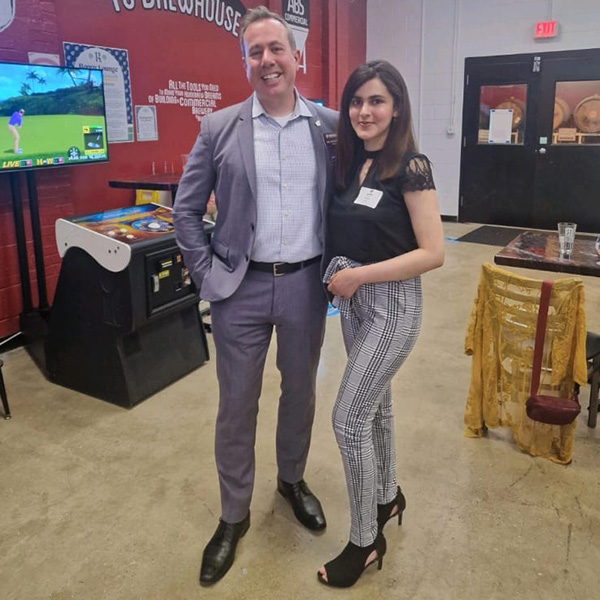
From breakdown to breakthrough
In just six months, I experienced more than most do in years. A new country, a demanding degree, a life-changing diagnosis, a breakdown, a recovery, a redefinition of self.
I walked into this MBA program thinking I would earn a degree—but I’ve gained far more: clarity, courage, and conviction.
To anyone out there facing the storm: setbacks don’t define you. Your response does.
